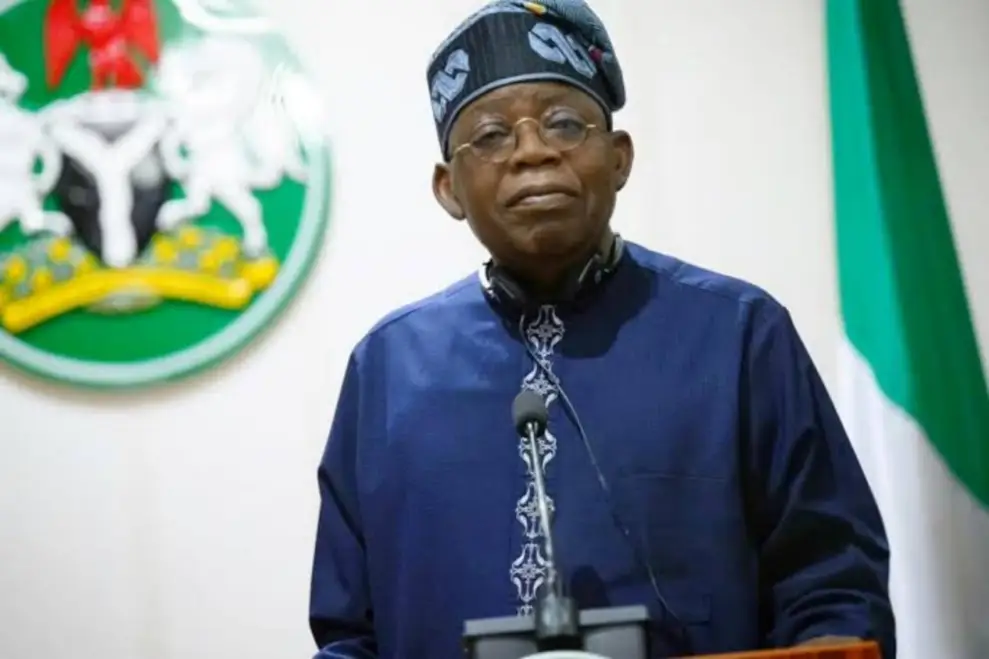The Federal Government has clarified that the administration of President Bola Ahmed Tinubu is committed to fairness, justice, and equity in the allocation of federal projects, appointments, and opportunities across Nigeria. The Honourable Minister of Information and National Orientation, Mohammed Idris, stated that the claims of lopsided development being circulated in some quarters are misleading and not based on verifiable facts.
According to Idris, “Contrary to the perception being pushed in some quarters, this administration has demonstrated uncommon commitment to balanced development and inclusivity since assuming office. The distribution of capital projects under President Bola Ahmed Tinubu is equitable. No region is playing a second fiddle or ignored.”
Government data shows that infrastructure development is spread across all six geopolitical zones. Beyond projects by Ministries, Departments, and Agencies, every region now has a Regional Development Commission to accelerate growth. The Lagos–Calabar Coastal Highway runs through the South while the Badagry–Sokoto Highway, currently under construction, cuts across the North. This balance, according to the government, is deliberate and reflects President Tinubu’s resolve to build a fair and inclusive nation.
Ongoing interventions span highways, bridges, rail, and power infrastructure. Funding has been secured for light rail projects in Kano and Kaduna States at ₦150 billion and ₦100 billion respectively. Lagos and Ogun States are also beneficiaries of metroline projects designed to strengthen Nigeria’s light rail infrastructure. Collectively, these transport projects are expected to create over 250,000 jobs nationwide.
The administration has also restarted work on the Eastern Corridor rail line from Port Harcourt to Maiduguri. Healthcare development is not left behind, as more than 1,000 primary health care centres have been rehabilitated nationwide to improve access and reduce health inequality.
Figures released show the actual distribution of federal projects: the Northwest received ₦5.97 trillion, representing over 40 percent of approvals. The South South had ₦2.41 trillion, North Central ₦1.13 trillion, South East ₦407 billion, North East ₦400 billion, while the South West excluding Lagos got ₦604 billion.
Legacy road projects are also widely distributed. The Lagos–Calabar Coastal Highway, measuring 750 kilometres, has 175 kilometres currently ongoing in Lagos, Cross River, and Akwa Ibom States. The Sokoto–Badagry Superhighway of 1,068 kilometres has 378 kilometres completed in Kebbi and Sokoto. The Trans-Sahara Highway, stretching 465 kilometres, has 118 kilometres ongoing in Ebonyi State. The Akwanga–Jos–Bauchi–Gombe Road, 439 kilometres in total, is being redesigned with rigid pavement for durability. Out of the total kilometres of these projects, the North accounts for 52 percent and the South 48 percent, reflecting an almost equal split.
Other significant projects in the North include the Sokoto–Gusau–Funtua–Zaria Road, 275 kilometres dualised at a cost of ₦824 billion, and the Abuja–Kaduna–Kano Road, 350 kilometres dualised at ₦764 billion. The BUA Tax Credit Road runs 256 kilometres through Jigawa, Katsina, and Kano States. Additional projects are the Zaria–Hunkuyi Road at 156 kilometres, the Kano Northern Bypass at 49 kilometres, the Kano–Maiduguri Road at 100.9 kilometres, and the Damaturu–Maiduguri Road at 110 kilometres. Borno State has the Bama and Dikwa Roads covering 100 kilometres, while Kebbi State benefits from the Malando Road at 76 kilometres. The Benue–9th Mile Road, dualised at 250 kilometres, is valued at $958 million. The Lokoja–Okene dualisation covers 86 kilometres, and the Kaduna–Katsina Roads have ₦150 billion allocated.
The South equally has major projects. These include the Lagos–Ibadan road of 8.5 kilometres worth ₦33 billion, the Lagos–Sagamu dualisation of 12 kilometres, and the Oyo–Ogbomoso–Ilorin road costing ₦146 billion. In Lagos, ₦120 billion has been earmarked for the rehabilitation of Carter, Third Mainland, and Eko Bridges.
The South East is also receiving attention with the Enugu–Onitsha Road covering 107 kilometres at ₦202 billion through the MTN Tax Credit scheme. Another section of 72 kilometres is funded by CBC at ₦150 billion. The Enugu–Abakaliki Road covers 36 kilometres. The 2nd Niger Bridge Access Road is 17.5 kilometres dualised at ₦175 billion, while the Lokpanta–Enugu Road stretches 61 kilometres dualised at ₦100 billion.
In the South South, the Eleme–Onne Road spans 30 kilometres at ₦156 billion. The Eket Bypass, measuring 9.7 kilometres, is dualised at ₦76 billion. The East–West Road Section 2 costs ₦186 billion. Nembe–Brass Road is valued at ₦150 billion, Lokoja–Benin Dualisation at ₦167 billion, and the 2nd Niger Bridge Access Road in Delta at 17 kilometres dualised for ₦146 billion. The Bodo–Bonny Road in Rivers State is a 35-kilometre stretch with 12 bridges costing ₦200 billion.
Energy and power projects are also in focus. The government has revived the 255MW Kaduna Power Plant and advanced work on the AKK Gas Project. Oil and gas exploration has expanded in the North with three oil wells drilled in the Kolmani region of Bauchi and Gombe States. The Kano–Maradi rail line, which was only 5 percent completed when inherited, has now reached 67 percent following renewed funding.
The Minister emphasised that President Tinubu is focused on building national infrastructure that serves all Nigerians rather than sectional projects. He said, “Lagos is rightly upgraded as Nigeria’s commercial hub, but the Northwest holds the lion’s share of approvals. This proves that all regions are receiving fair consideration.”
Equity is also visible in federal appointments, with the President ensuring that capable Nigerians are appointed from all regions based on competence and inclusivity. Inclusivity, Idris noted, lies at the centre of the Renewed Hope Agenda.
The government has also created five new Regional Development Commissions and established the Federal Ministry of Livestock Development, showing determination to address the unique challenges of each region.
“The administration has not only kept faith with Nigerians but has proven itself to be fair, pragmatic, and consequential. His leadership is inclusive, his vision unifying, and his commitment to equity and justice unwavering. Nigerians can rest assured that under his watch, no part of this country will be left behind,” Idris stated.

